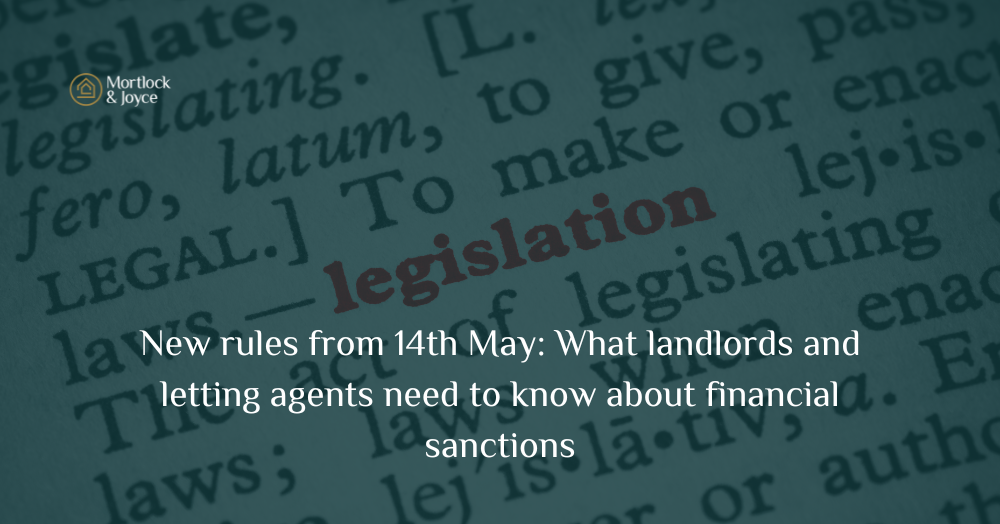If you’re a landlord or letting agent, there’s a new set of rules that came into effect on 14th May 2025—and they could seriously impact how you rent out property. These updates are all about financial sanctions, and while that might sound like something only banks deal with, it now directly affects the rental market too.
In simple terms: from now on, before renting out a property, you must check whether your tenant (or landlord, if you’re an agent) is on the UK’s financial sanctions list. If you don’t—and it turns out they are—you could face hefty fines or even prosecution.
Let’s break down what’s changed and what you need to do to stay on the right side of the law.
What Are Financial Sanctions?
Think of financial sanctions as the government’s way of cutting ties with people or organisations linked to criminal activity, terrorism, or other dodgy dealings. The UK keeps a list of these people, and it’s illegal to do business with them—renting a flat to them now falls under that rule.
What’s Changed on 14 May?
Before 14 May, only high-value property deals (£8,300+ a month) required financial sanctions checks. Now, every single tenancy, no matter how big or small, must go through this process.
Here’s what that means:
Letting agents and landlords must run sanctions checks on all tenants and guarantors. If the landlord is using a letting agent, the agent must also check that the landlord themselves isn’t on the sanctions list. If someone is on the list, you must report it immediately to the government (via OFSI – Office of Financial Sanctions Implementation). Keep records of all checks you carry out.
What happens if you don’t comply?
The penalties are no joke. Failing to carry out checks—or ignoring the results—can lead to:
- Fines up to £1 million
- Possible criminal charges
- Serious damage to your reputation or business
What should you be doing now?
If you’re a landlord or agent, here’s how to stay on the safe side:
Add sanctions checks to your referencing process – Make it part of your tenant screening, just like credit and ID checks.
Use a reliable tool or platform – There are systems now that can automatically run these checks and flag any issues.
Train your team – Make sure everyone involved knows how the checks work and what to do if something shows up.
Keep the paperwork – Log everything in case you’re asked to prove you followed the rules.
Final Thoughts:
This might feel like just another box to tick, but it’s a big deal—and it’s now the law. Whether you’re renting out a studio flat or managing a whole portfolio, you’re expected to check that everyone involved is legally allowed to rent or let property in the UK.
So, if you haven’t already updated your process, now’s the time. A quick check today could save you a serious headache (and a huge fine) tomorrow.
Need more info? You can check the official UK sanctions list and guidance at the
OFSI website.
